In pictures: Benge's modular synth collection
Take a tour around Benge's Memetune Studios
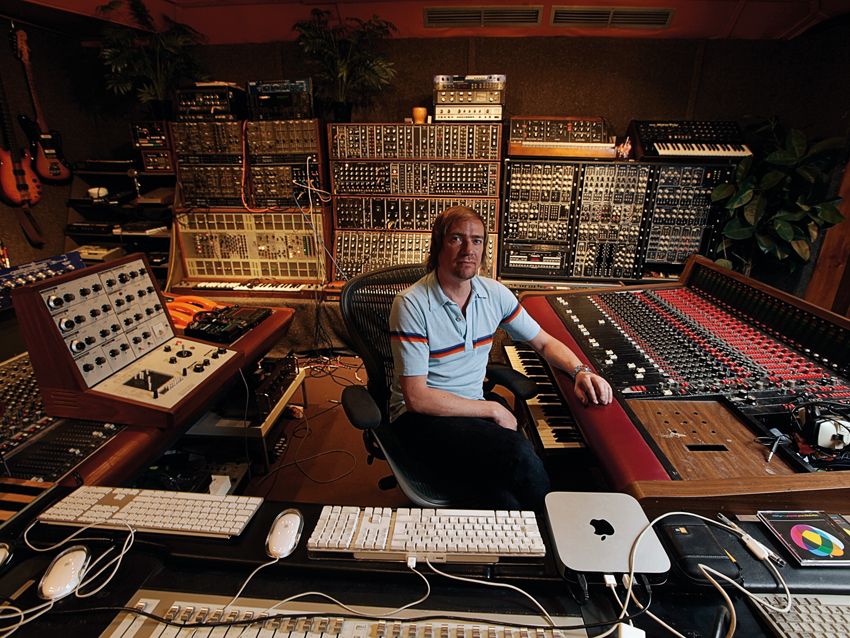
Intro
"My name's Benge and I'm here at my studio in London. I have several modular systems in one place, all connected together. I run Memetune Studios, which is the result of my long obsession with synthesizers and analog/digital recording gear.
"I have pretty much everything all connected to my central patchbays and mixing consoles. I like to think of the studio as one giant system. Some people who come here say 'Oh its like a synthesizer museum!'m but in fact I don't see it as a museum because I actually use all this stuff on a daily basis on my various projects and collaborations."
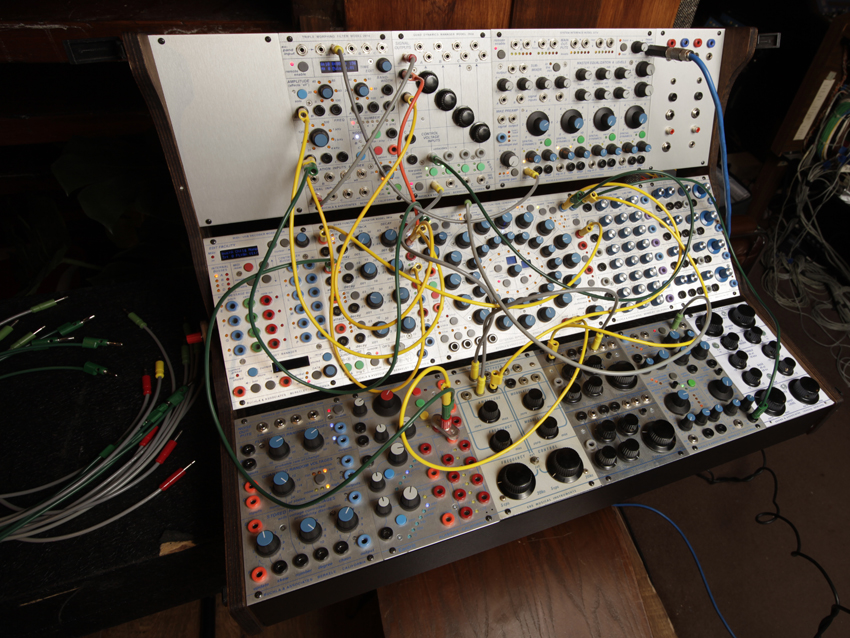
Buchla 200e
"This is a modern modular system made by Don Buchla. It's called the 200e and I've been putting it together over the past few years from various places. I actually got to meet Don at one point when I picked up some modules from him.
"He's a bit of a legend really because he pretty much invented the idea of analogue voltage controlled synthesis (along with Bob Moog who was working independently on the other side of America). What's cool is that Don is still in business having stuck to his guns designing similar systems to this one continuously for 50 years. Actually, I just picked up one of his first generation of systems - a Buchla 100 from the mid-'60s..."
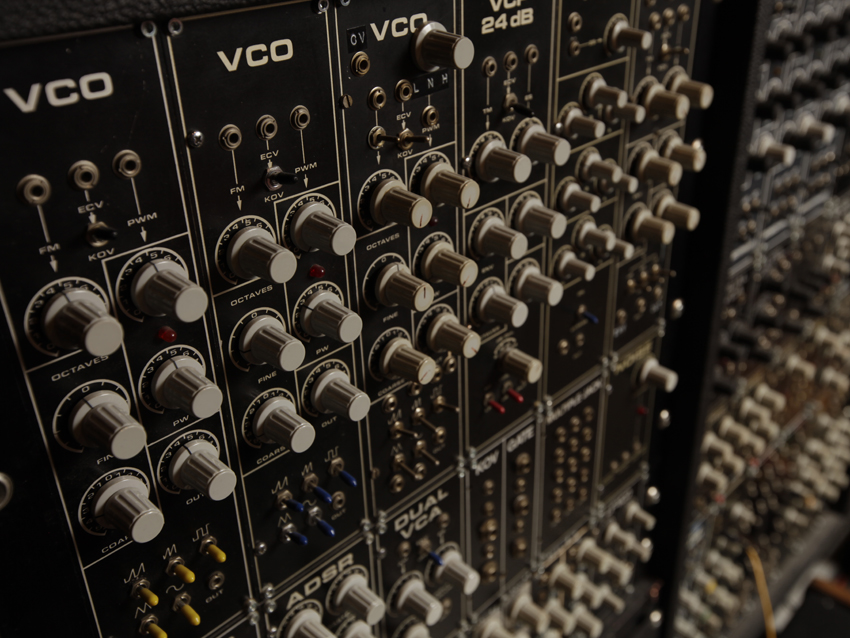
Formant Modular
"This is a Formant Modular. It was made as a kit project in the late '70s which was published in a German magazine called Elektor. It actually sounds great and has some very interesting features such as the percussion module - this makes killer hi-hat and snare sounds.
"I use it all the time. The whole system kind of does things by brute force - having so many oscillators and filters lined up and ready for action. It also looks cool - like something Darth Vader would blow up a spaceship with."
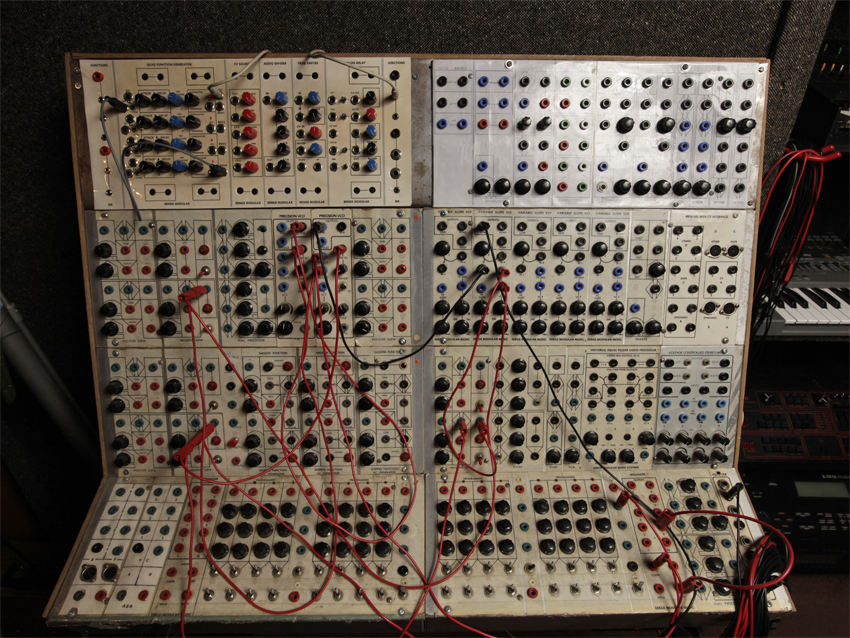
Serge Modular
"Here's a Serge Modular from 1973-ish, made in California by hippies. The modules don't have words on them explaining what the controls do - they decided to use abstract minimalist symbols!
"I built the cabinet for this system myself, based on some designs from the '70s. It's hard to describe what this system has going on because the modules have different functions depending on how you patch them. But roughly speaking it has 18 VCOs, five VCFs, two phasers, two reverbs, two sequencers and tons of processors/mixers/VCAs etc. It's pretty mind-boggling."
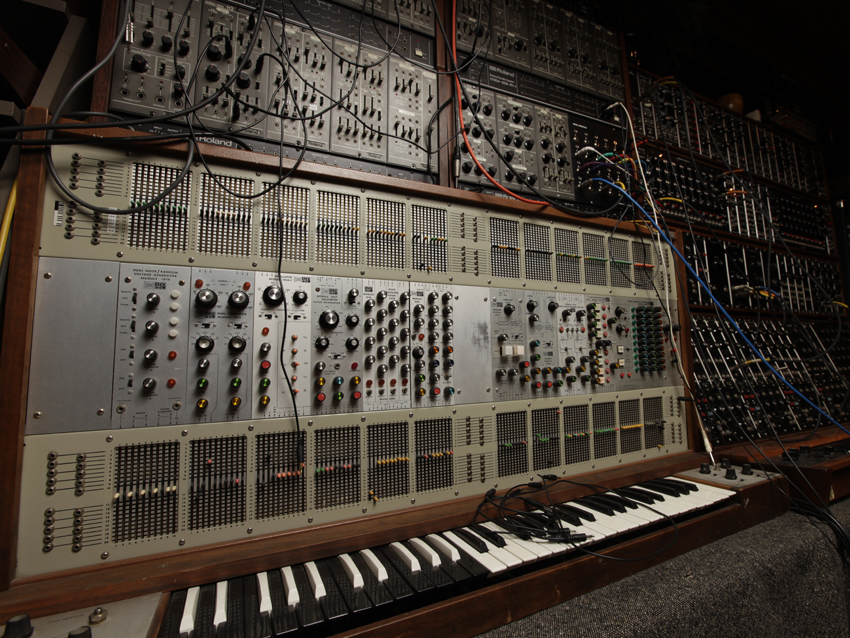
ARP 2500
"Here's another very early American modular - the ARP 2500. These are extremely hard to come by and sound wonderful. They were a bit overshadowed in their day by the Moog systems, but to me they sound just as big and powerful.
"There's an awful lot going on with it. It uses a really strange patching system where you line up little sliders to achieve the connections. Apparently Alan R Pearlman had previously worked for NASA on the Apollo and Gemini space missions; maybe some of the components found their way into this synth. It's a nice thought."
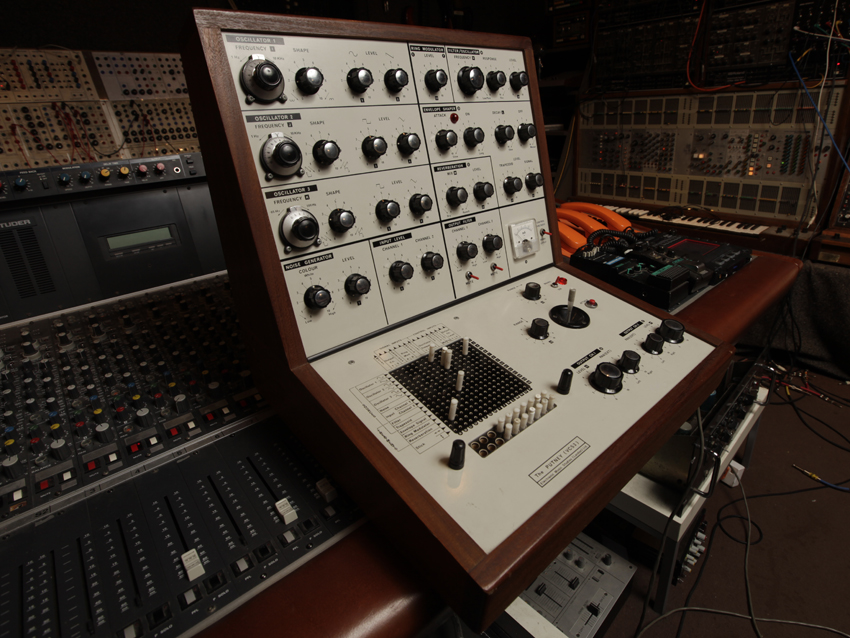
EMS VCS3
"Here's the EMS VCS3, which is a very early (1969) British semi-modular synth. I love this thing: it has so much character and is really flexible and compact. This little thing has got three oscillators, a filter, a noise generator, envelopes, ring modulators, inputs and outputs - it's even got a spring reverb. Oh, and a built-in Dalek."
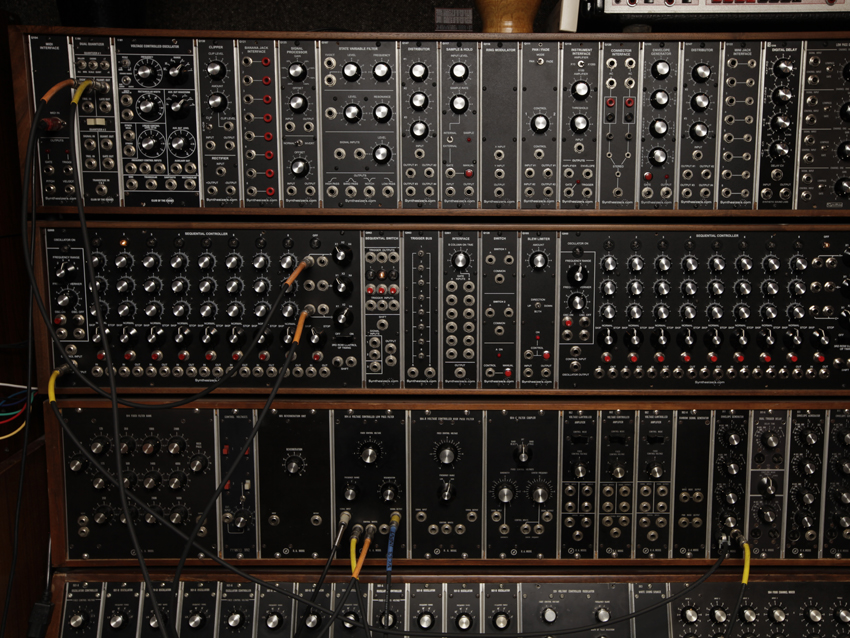
Moog 3C
"This is mostly a Moog 3C system from 1968. However, the top two rows are Moog-format modules made by current manufacturers synthesizers.com, COTK, Cynthia and SSL. It's great to see current companies keeping the Moog format alive - I think in a way it's my favourite format because I like using 1/4 inch jacks and big spacious panels.
"The Moog gets used pretty much every day and it just sounds so good. I don't think the filter has ever been bettered and in some ways the power and overall sound of this beast has never been bettered. Bob Moog just got it right straight away in his very first product, and everything else since has been a compromise on the purity of his system. I wish Moog would start making modules again - you should write to your local MP about it."

